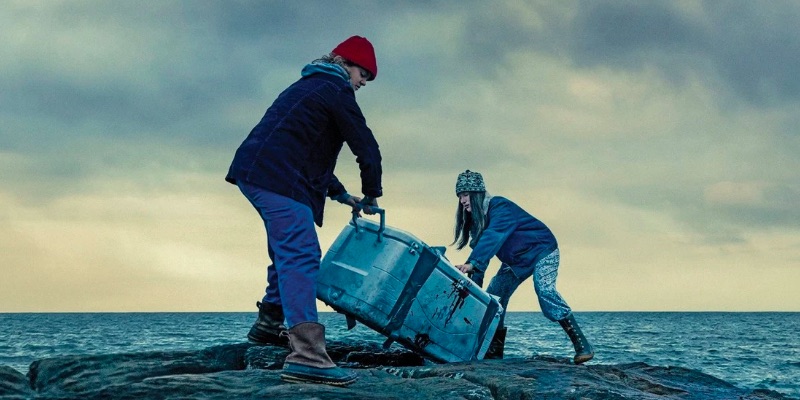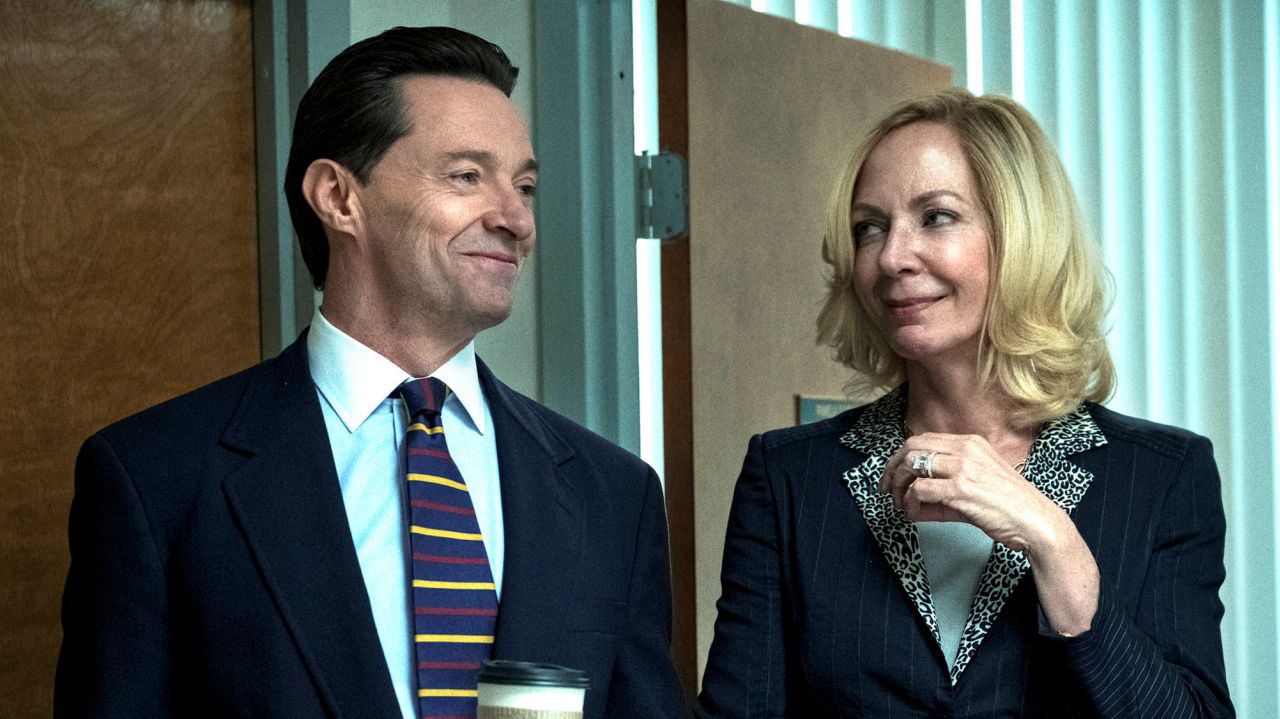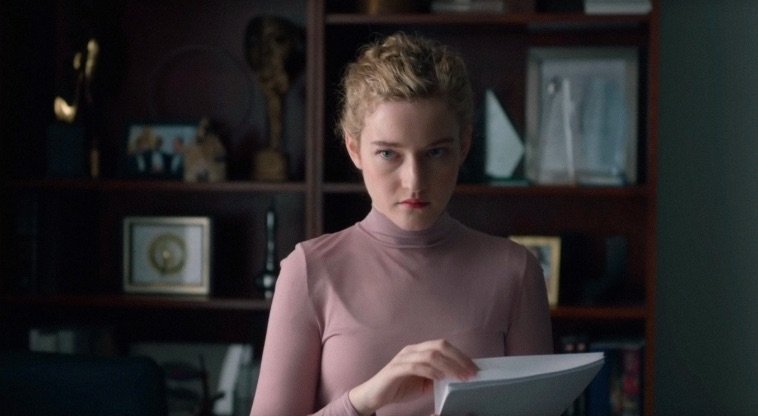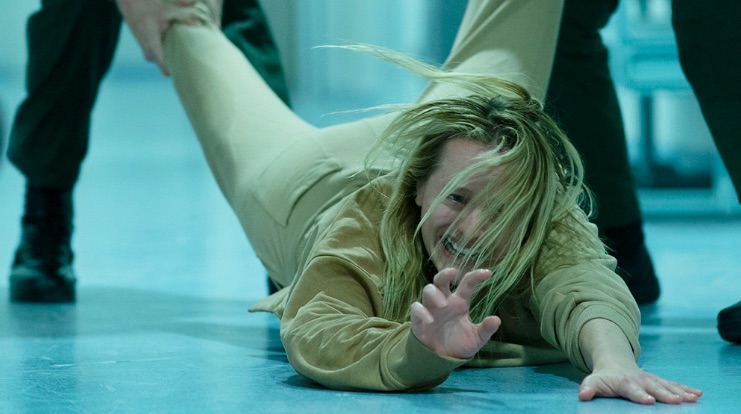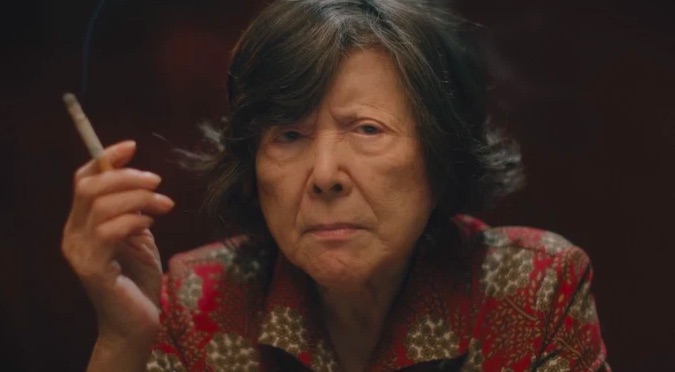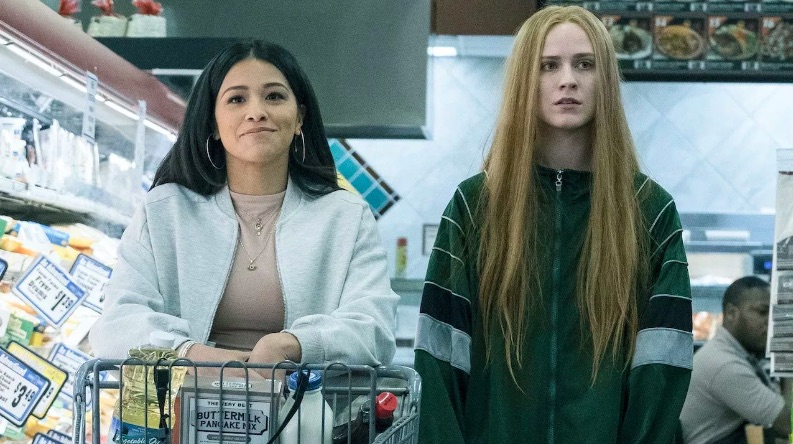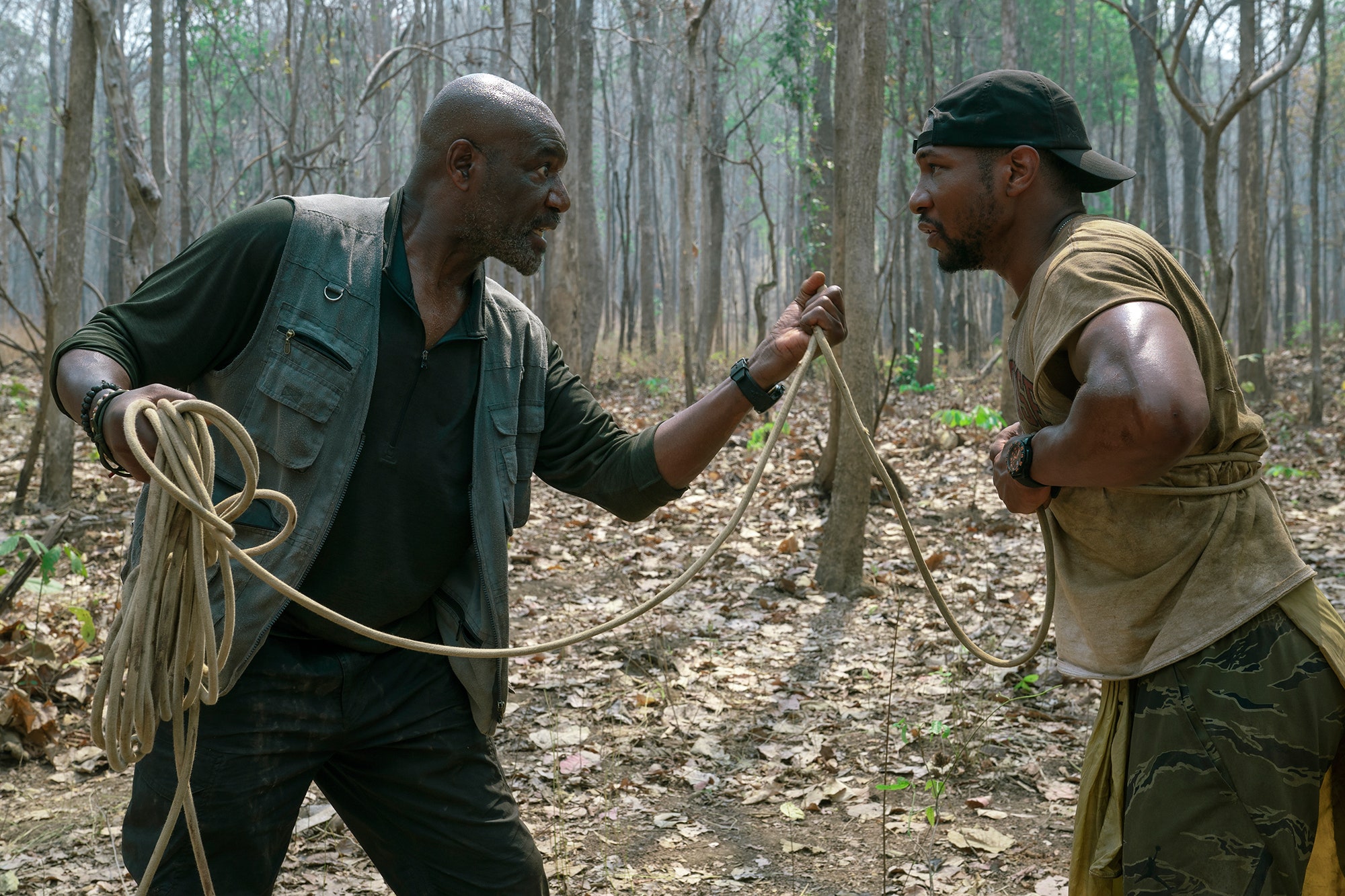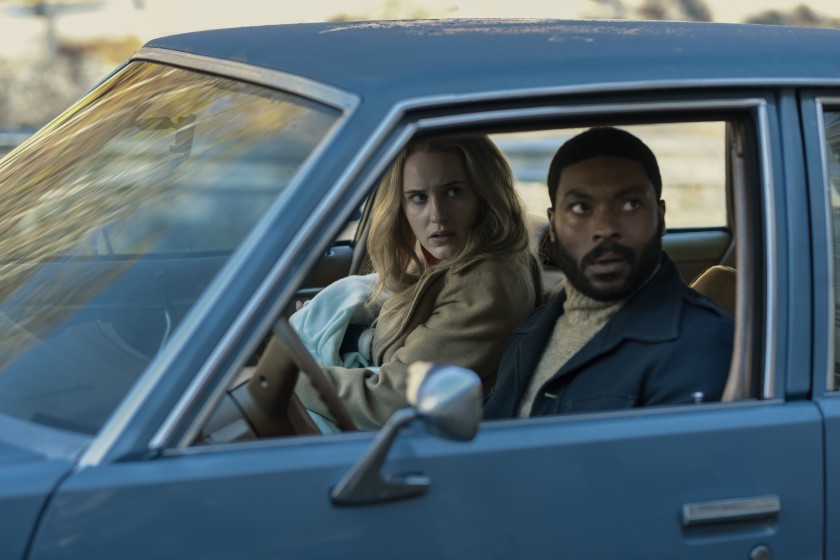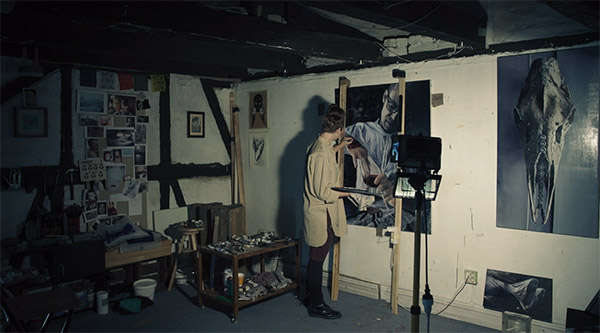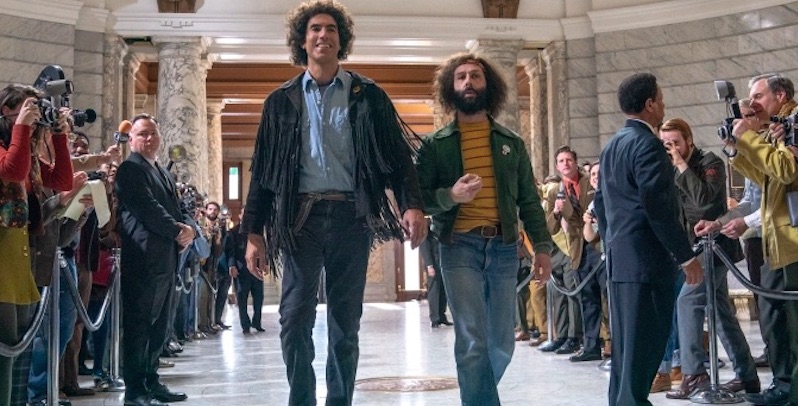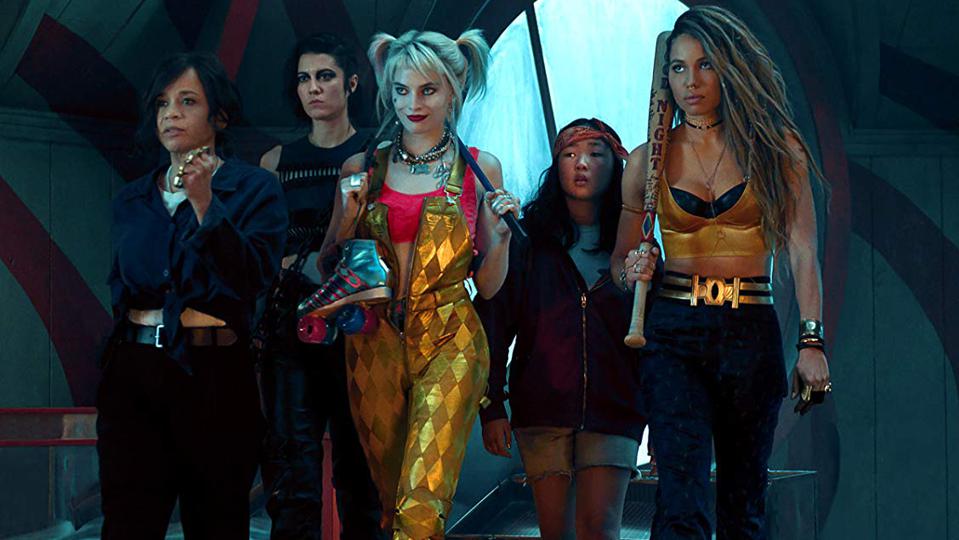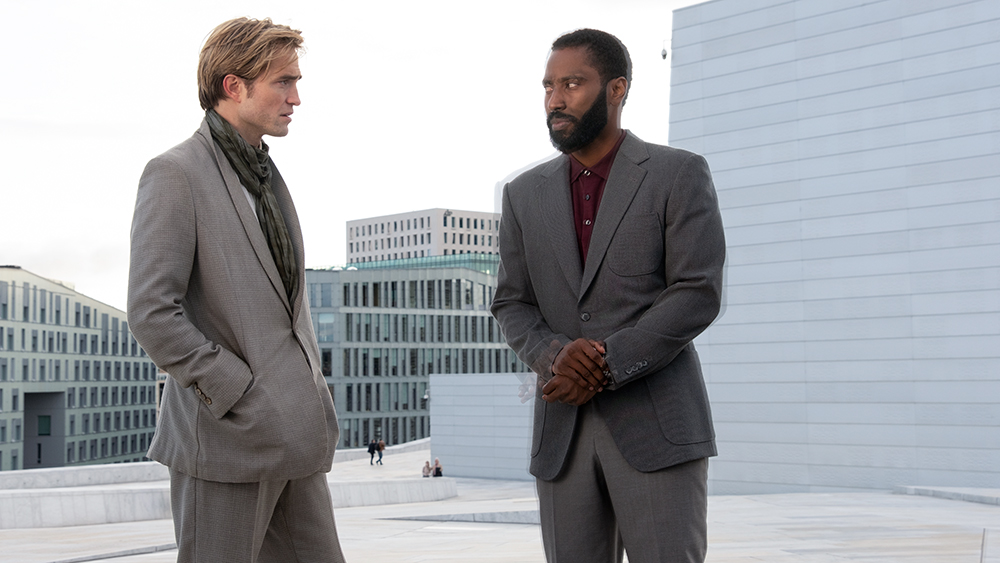For obvious reasons, we didn’t go to the movies that much, this past year. If you didn’t head to a theater in January or February (perhaps to watch, at the last minute, an Oscar contender) then there’s a chance you didn’t get to go at all. Eventually, during the COVID crisis, theaters outside of New York City (where I live, grumble grumble) managed to compensate, holding drive-in and other creative screenings to safely bring audiences releases on the big screen. But many expected box-office moneymakers, like the upcoming Bond film No Time to Die, were pushed to open next year instead, while others, like the long-awaited Tenet, stuck it out.
Here are the rules for our selection: all films considered all had to be full-length feature films, released (in theaters or on streaming services) in the United States during the 2020 calendar year. This list considers international films as well as domestic ones. And, as usual, “crime” is defined rather broadly, to include all illegal activity from theft, to murder, to cons, to gangster shenanigans, to on-the-lam stories. I normally don’t consider “war” films crime films, but I’m counting Da 5 Bloods because it’s a crime-y treasure hunt sent against the backdrop of the Vietnam War. I didn’t know how to maneuver my criteria enough so as to get Kelly Reichardt’s First Cow on this list, but please just know that I loved it and you should watch it.
As with all of our best of year content, this list is not ranked.
All of these films are available to stream, and we’ve included those details below each listing, to help you build a marathon that will end this terrible year on, at least, an entertaining note. Hopefully.
This is my last piece as a staff writer; I’m gratified to say that I’ll be returning in January as an editor. Until then! In the meantime, please stay sanitized, distanced, and safe. Wishing you all a wonderful, and cinematic, start to 2021.
Blow the Man Down
I loved this frosty, bloody, bone-chilling indie film, written and directed by Bridget Savage Cole and Danielle Krudy. It’s about two sisters (Sophie Lowe and Morgan Saylor) from a small, coastal New England fishing town. Shortly after the death of their beloved mother, they wind up having to cover up the terrible murder of a would-be assaulter. But as they attempt to conceal the crime, hoping friendly police officers and nosy neighbors do not suspect anything too fishy, they become drawn into their town’s dark underbelly, which turns out to be surprisingly matriarchal. (Available to stream on Amazon Prime.)
Bad Education
Hugh Jackman and Alison Janney star in this film, directed by Cory Finley, based on the Roslyn High School embezzlement scandal of 2002, in which a Long Island school superintendent and members of his staff were revealed to have embezzled $11.2 million million from the district’s coffers over a period of several years. Jackman plays Frank Tassone, the beloved, genuinely-devoted school official who leads a spellbinding cover-up when his second-in-command Pam Gluckin (Alison Janney, right on the money in her portrayal of a tough Long Island mom) is caught spending taxpayer money to make personal purchases. But the more Frank treads water, the more his carefully-crafted, high-flying lifestyle begins to fall apart. (Available to stream on HBO Max.)
The Assistant
Writer-director Kitty Green’s economical film The Assistant masterfully represents the insidious mistreatment, dehumanization, and exploitation to which women are subjected in professional settings. But it also does this which is so very hard to do well, especially amid the sea of recent books and films paying pay lip-service to or attempting to ride the cultural coattails of #MeToo. The Assistant sails above this topical chaff, chronicling one day in the life of a young, female assistant (Julia Garner) as she becomes increasingly immersed in the culture of ubiquitous abuse promoted by the powerful, older, male entertainment executive for whom she works (who never literally appears in the film). It is an aching, gripping story that squarely frames how such regimes establish and maintain their systems of harm and debasement. The most exquisite thing about this is its most realistically terrifying—the increasing precariousness of our pained and tormented but committed heroine, as she decides she must speak up. (Available to stream on Hulu.)
Red, White, and Blue
This 80-minute installment of Steve McQueen’s Small Axe anthology series—a collection of five feature-length films all based on true stories about West Indian immigrants in 60s-80s Britain—stars John Boyega as Leroy Logan, a Black forensic-scientist-turned police officer, who decides to enlist in London’s Metroplitan Police after his father is assaulted by two cops. He hopes to be able change the culture of the police from within (and will found the Black Police Association), but he must contend the implications of his father’s objection to his chosen path, hatred from different communities (notably, the racism from his own superiors), and his own professional perfectionism. Like the rest of the chapters in Small Axe, it is a beautiful, meditative inquiry into the pillars of anti-Blackness. (Available to stream on Amazon Prime.)
The Invisible Man
Not as technically perfect in its cultivation of fear and dread as The Assistant, but still very effective and worthwhile (largely because of the performance of Elizabeth Moss), The Invisible Man updates the classic story of Griffin, a man who has turned himself invisible and winds up using this quality to deftly harm people. Yet unlike the 1933 film version (in turn based on H.H. Wells’s novel of the same name), Griffin is not a rampaging, murderous lunatic who endangers society, but a possessive and vengeful threat to one woman in particular. This theme rings a little familiar: don’t we hear often that women are more likely to be murdered by someone they know than by a random maniac? The new Invisible Man makes Griffin the abusive ex-boyfriend of our protagonist Cecilia (Elizabeth Moss). He seems to have died, but has really turned transparent, which makes his vicious stalking even easier to accomplish. Because of this, for a while, the new Invisible Man, written and directed by Leigh Whannell, seems like a straight-up, supernatural horror movie—in which a woman is haunted by a ghost rather than hunted by a person. The way the film allegorically uses genre in this way to starkly un-desensitize us (apologies for that turn of phrase) to abuse is generally pretty successful, but the film possibly makes its more intense criticism of patriarchal oppression through Cecilia’s attempt to prove that someone is literally stalking her. This is the least science-fictional and most gut-wrenchingly real part of the movie: that in attempting to prove that she is in danger, Cecilia would be fighting an uphill battle even if her assaulter were visible. And he’s not. (Available to stream on HBO Max.)
Lucky Grandma
Lucky Grandma is the film to watch, this holiday, if you miss seeing your elder relatives. Directed by Sasie Sealy and co-written by Angela Cheng, it’s about an irascible elderly Chinese widow called Grandma Wong (an incredibly badass, chainsmoking Tsai Chin, who once upon a time stole the show in The Joy Luck Club) who finds herself in danger after she wins big at a casino in New York City’s Chinatown and its gang-member proprietors hunt her down to take the cash back. Realizing she’s in danger, she hires a (discount) bodyguard from a rival gang, unwittingly landing herself in the middle of a mafia war. As many reviewers have noted, the movie is about “luck”—twists and tricks, fortune and fortitude, fate and foxiness that get our wonderful protagonist in and out of various fixes. Visually beautiful (I haven’t seen a film in a while that captures cigarette smoke more stunningly) with its rich color palate of neons, reds, blacks, and golds, and staring you down with a Jarmusch-esque laconicism, Lucky Grandma will light up your night, and possibly, your year. (Available to stream on Showtime.)
Kajillionaire
This much-anticipated comic-crime film from writer-director Miranda July stars Evan Rachel Wood as Old Dolio Dyne, a twenty-six-year-old career criminal whose perpetually-hustling, kind-of-hapless, con-artist parents (Debra Winger and Richard Jenkins) wind up inviting a friendly, heist-movie-loving stranger (the effervescent Gina Rodriguez) into their latest scheme. But our heroine has doubts about the way she’s been taught to live. July is incredibly skilled at drawing charm out from the pettiest, loneliest, strangest circumstances, and balancing her characters’ desire to do wonderful things alongside their throttling apprehension, and she succeeds again in the vein, in this lushly-colored, bubbly (ahem, literally) story of family, friendship, love, and happiness. (Available to rent on Amazon.)
Bacurau
Bacurau, written and directed by Juliano Dornelles and Kleber Mendonça Filho is a jarring, shocking, spectacular movie that erupts in a glorious crescendo of blood and revolution. The story about a young woman who goes to her ancestral village in South America following the death of her grandmother, it is a “Brazillian dystopian spaghetti western,” in the words of Vulture critic Nate Jones, a tale of a tremendous fight against elements both extremely realistic (and bound to happen, like guarded water supplies) and, um, less realistic but just as sinister. The winner of the Jury Prize of Cannes, this is a masterpiece that will get your blood pumping like no other. (Available to stream on The Criterion Channel.)
Da 5 Bloods
Spike Lee’s new movie is another of this list’s successful Neo-Westerns, this one set in Vietnam. It’s about four Black veterans, members of a squadron nicknamed “the Bloods,” who return forty-or-so years after the war to hunt for gold that they had hidden while on duty, once new evidence surfaces that might reveal the treasure’s location. With it, they’ll find the body of their Squadron leader, Norman (Chadwick Boseman). But as they head into the jungle, they wind up awakening physical and psychological ruins of the war that conspire to ruin them, for good. The lead is Paul, played by one of my favorite actors, Delroy Lindo, who delivers possibly the best performance of the year. I don’t know what’s going on with the Oscars this year, but if he does not win Best Actor, I will be livid. (Available to stream on Netflix.)
I’m Your Woman
Julia Hart’s commanding neo-noir I’m Your Woman, co-written by Jordan Horowitz and starring an excellent (and surprisingly blonde) Rachel Brosnahan, is a swift and clever tale of a woman who goes on the lam after her husband mysteriously procures a baby and then vanishes. (Available to stream on Amazon Prime.)
Lost Girls
Possibly the harshest, most distressing film on this list, Lost Girls adapts Robert Kolker’s true-crime book Lost Girls: An Unsolved American Mystery, which chronicles the murders of several young, female sex workers at the hands of the unidentified Long Island Serial Killer. Director Liz Garbus, and screenwriter Michael Werwie, treat this topic with great care and its victims with much respect, channeling this tone through the efforts of Mari Gilbert, who, in devotedly searching for her own missing daughter, uncovers a string of similar murders of female sex workers. (Available to stream on Netflix.)
The Painter and the Thief
This exquisite, ethereal documentary from director Benjamin Ree unfolds the complicated friendship between the Czech painter Barbora Kysilkova and Karl Bertil-Nordland, a Norwegian man struggling with drug addiction who steals two of her most valuable paintings from an art gallery, and eventually winds up becoming her muse. A breathtaking rumination on the restorative, healing powers of art, this film, like its artist, finds beauty in the unlikeliest and most forgotten places. (Available to stream on Hulu.)
The Trial of the Chicago 7
This star-studded, breakneck legal drama from writer-director Aaron Sorkin, about the unjustified and prejudicial court case of seven activists scapegoated by the Nixon administration in 1968, really works. It’s a tight race-car of a movie, and once you’re locked in, you’re whipped through this electric moment in political history like you could never imagine. (Available to stream on Netflix.)
Birds of Prey (and the Fantabulous Emancipation of One Harley Quinn)
This hard-won Harley Quinn portrait—wrested to screen through the efforts of Margot Robbie, directed by Cathy Yan, and and written by Christina Hodson—is a very fun antidote to the sour, vapid aggressive energy of its predecessor, Suicide Squad. Reeling after being dumped by the Joker, Harley Quinn (Robbie) winds up on a biiiiiit of a bender that turns into a journey of self-appreciation and female support when she teams up with Huntress (Mary Elizabeth Winstead), Black Canary (Jurnee Smollett) and Renee Montoya (Rosie Perez) to help Cassandra Cain (Ella Basco) after she becomes targeted by an egotistical gangster (Ewan McGregor) and his psychopathic henchman (a VERY good Chris Messina). Come for the female friendship, pet hyenas, and roller derby, stay for the luscious art direction and, overall, fantabulous aesthetic. (Available to stream on HBO Max.)
Tenet
After all the hype, I found Christopher’s Nolan’s dizzying, time-origami-ing espionage thriller to be a little inchoate, but it’s definitely worth the watch. It’s more ambitious, and cumbersome, than Inception and you absolutely have to give all one hundred and fifty minutes of its runtime your maximal attention. Don’t watch it if you’re tired or if you’re with someone who will try to speak to you. Put your phone on silent and put your kids and pets into bed. Do not look away from the screen once—actually, you should probably your eyelids open with little sticks like Odysseus, to make sure you don’t blink. Sever ties with everyone you know and lock yourself in your house. And then watch it again. (Available to rent on YouTube.)


